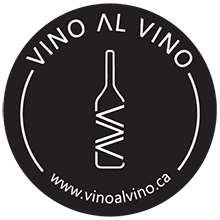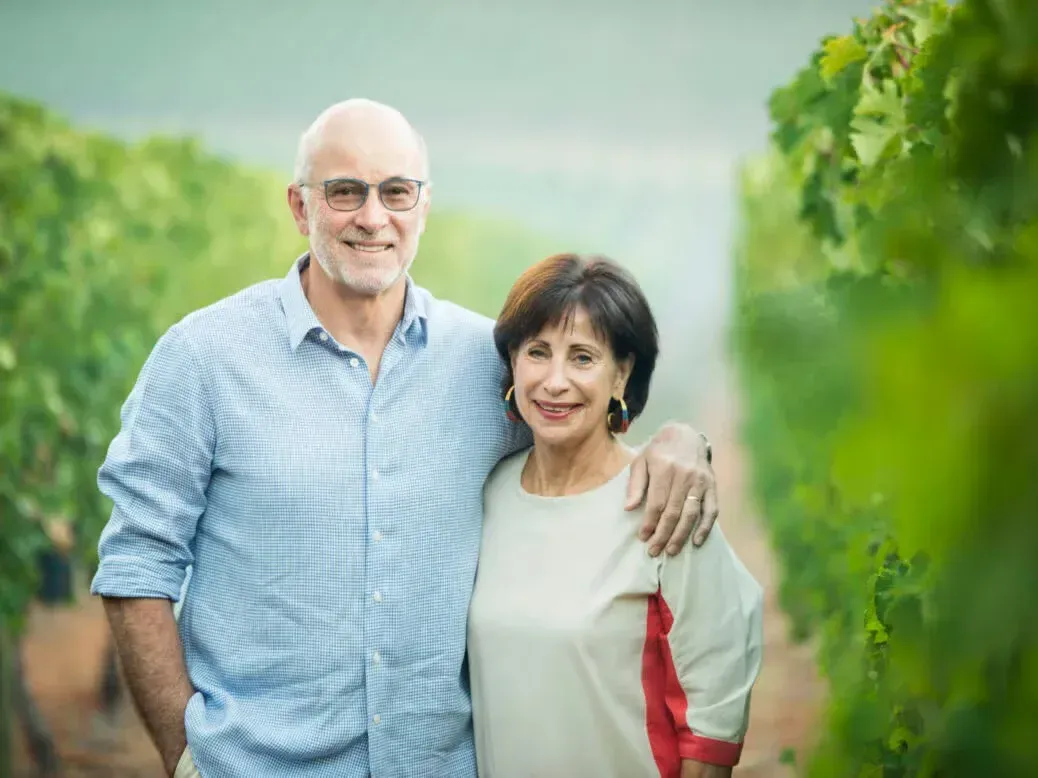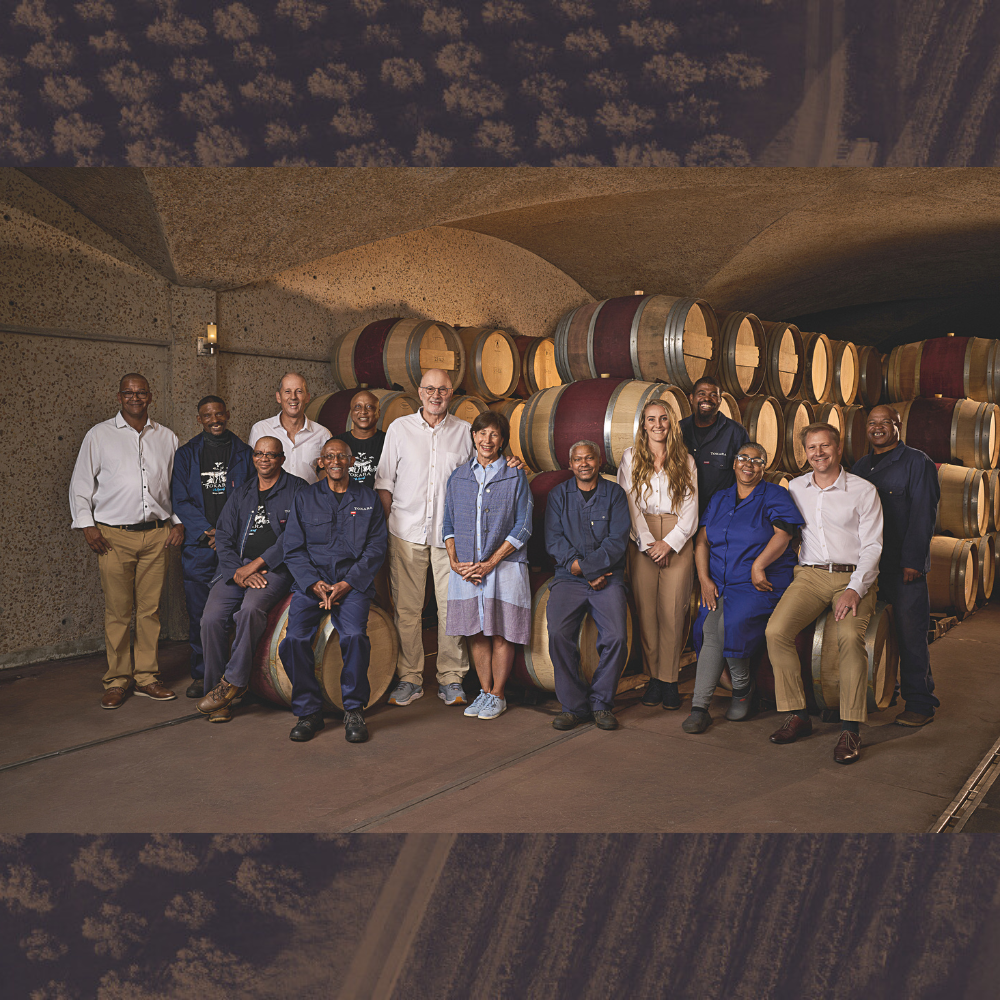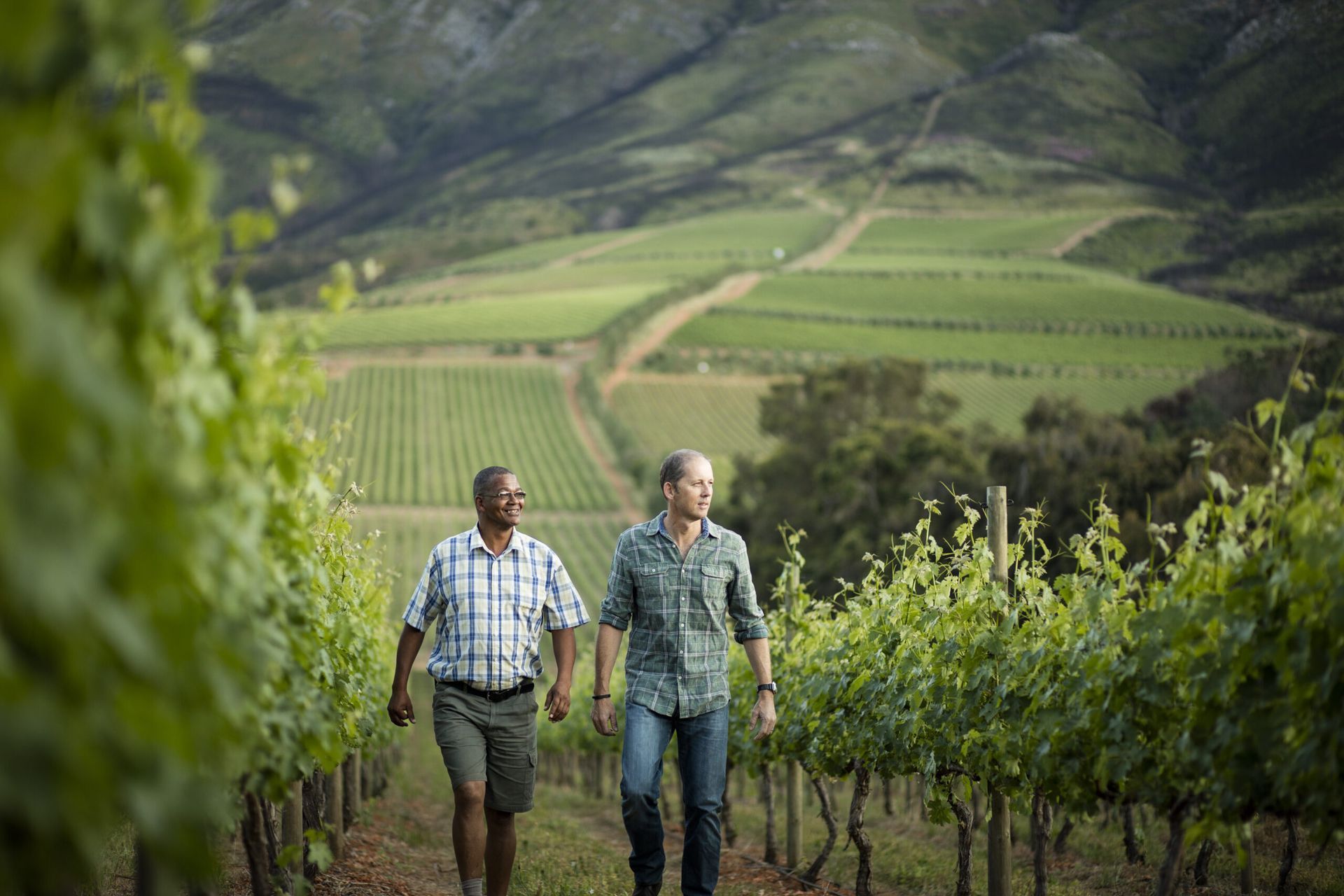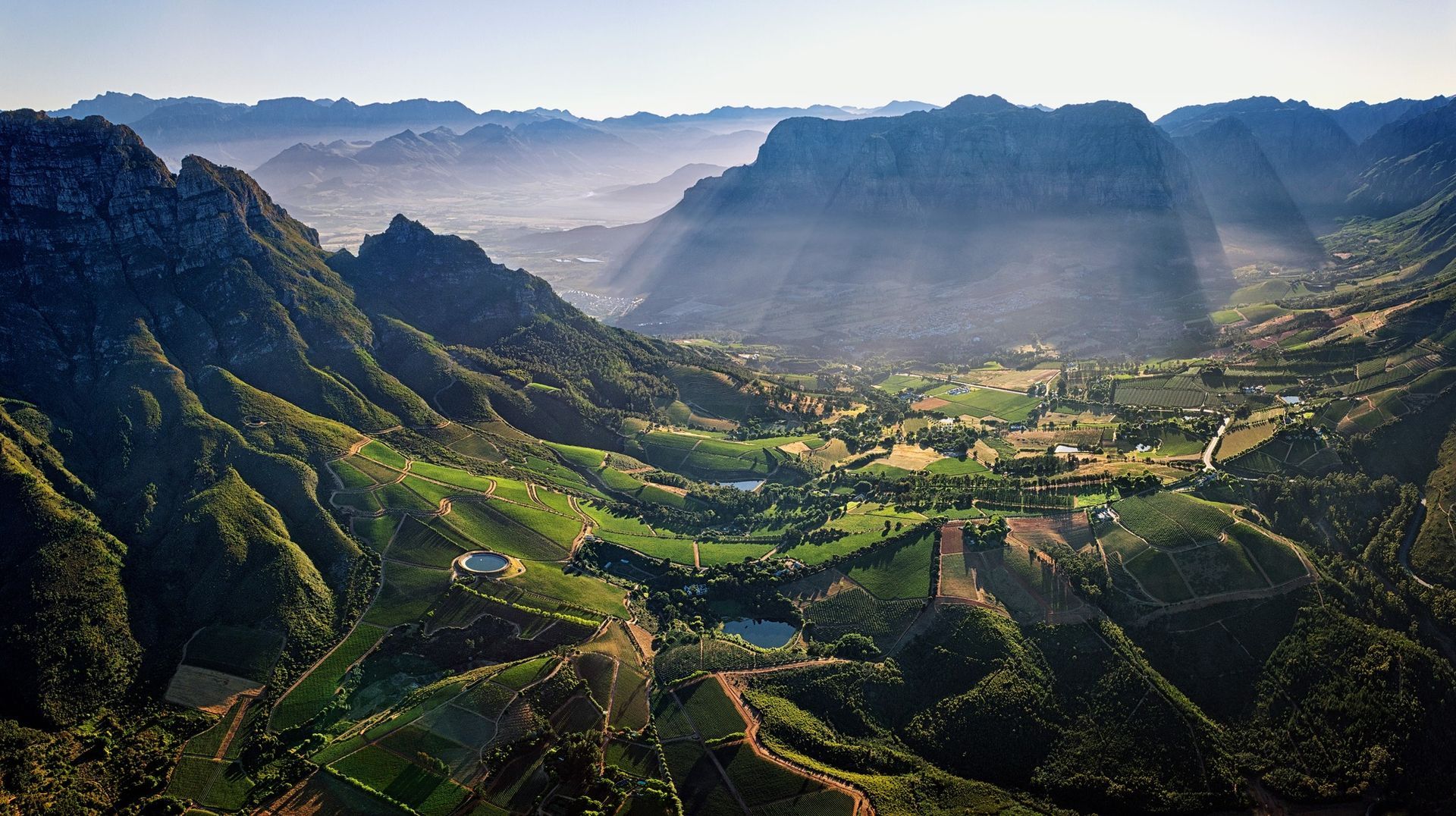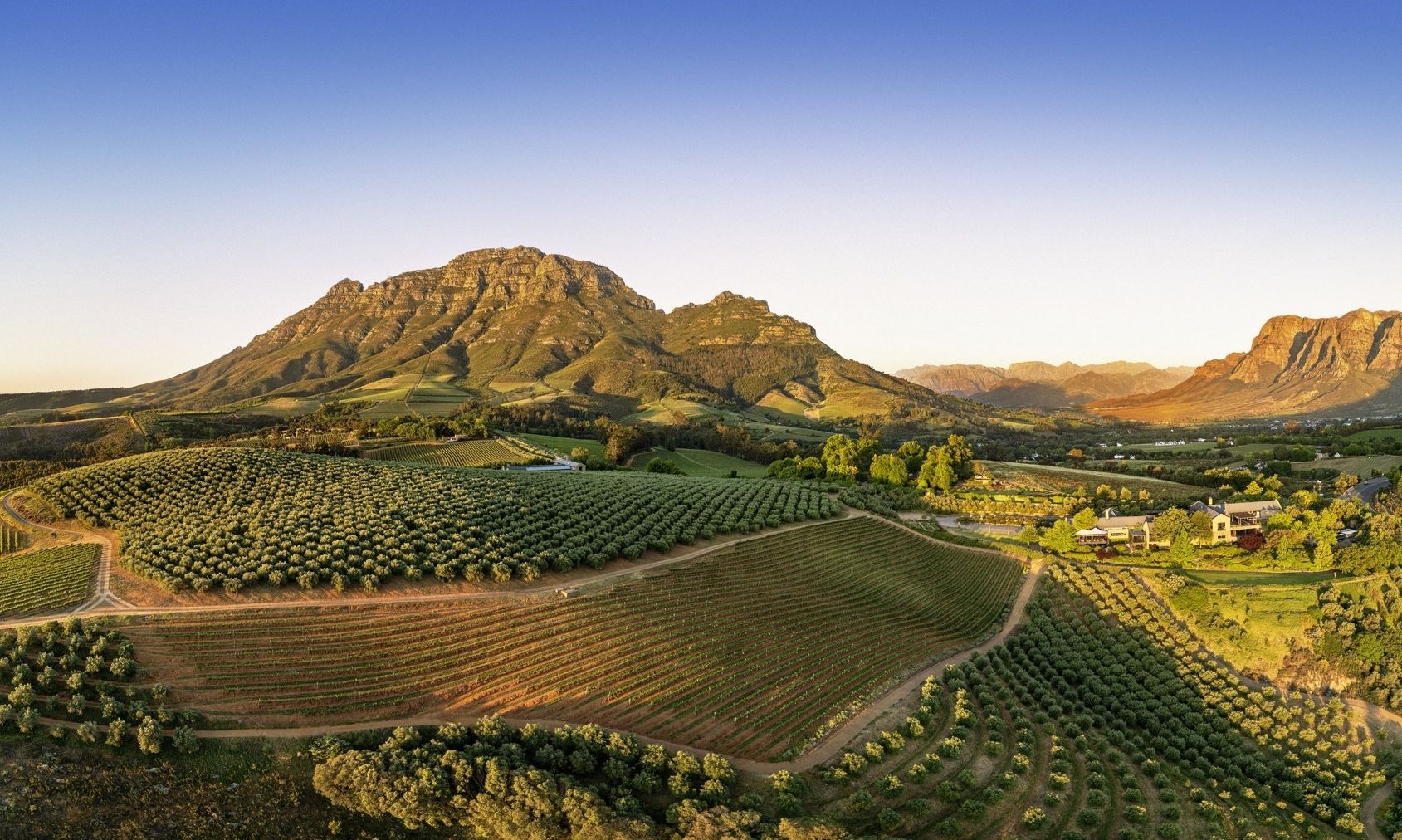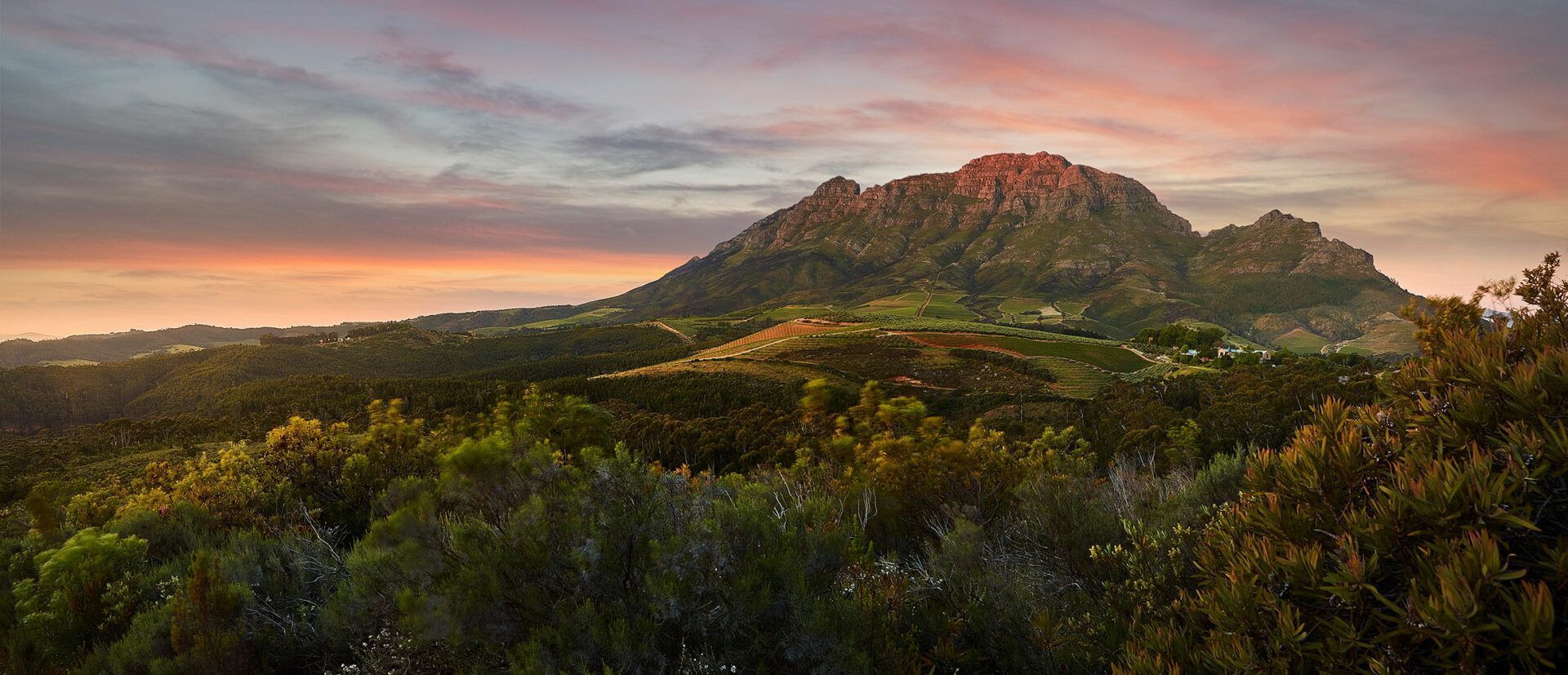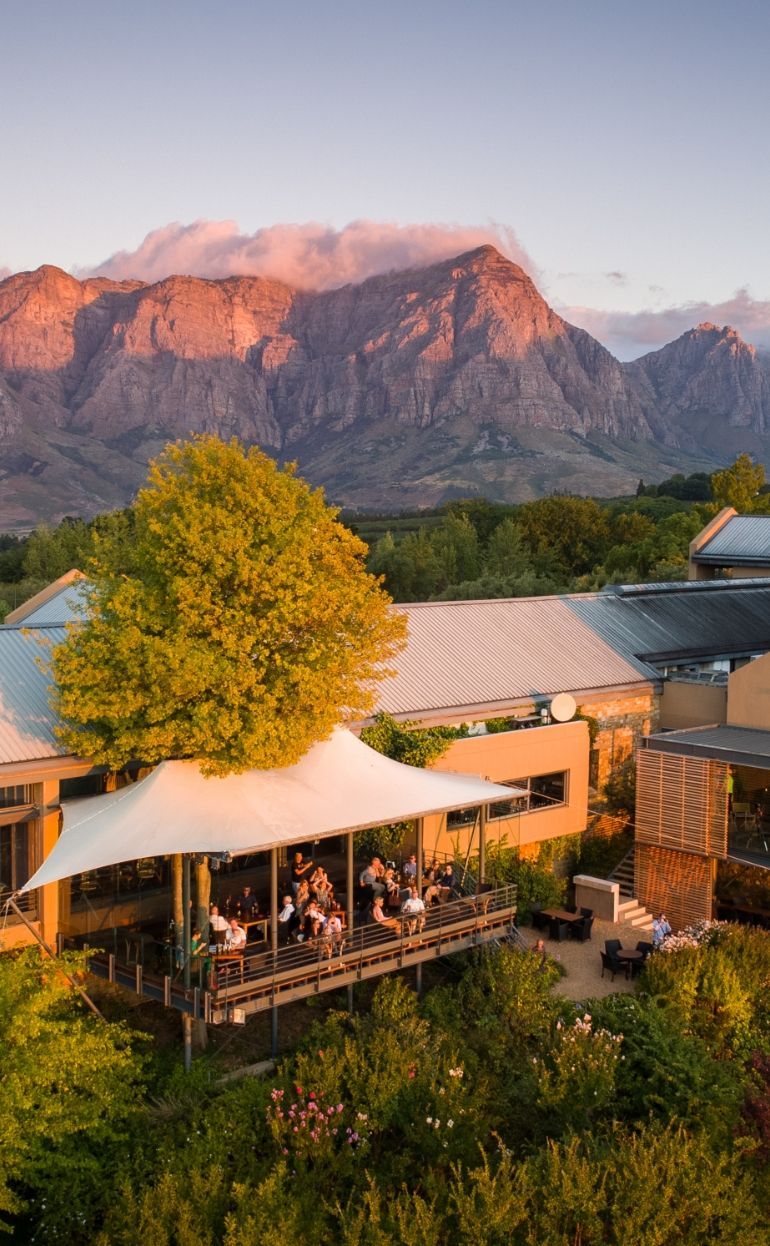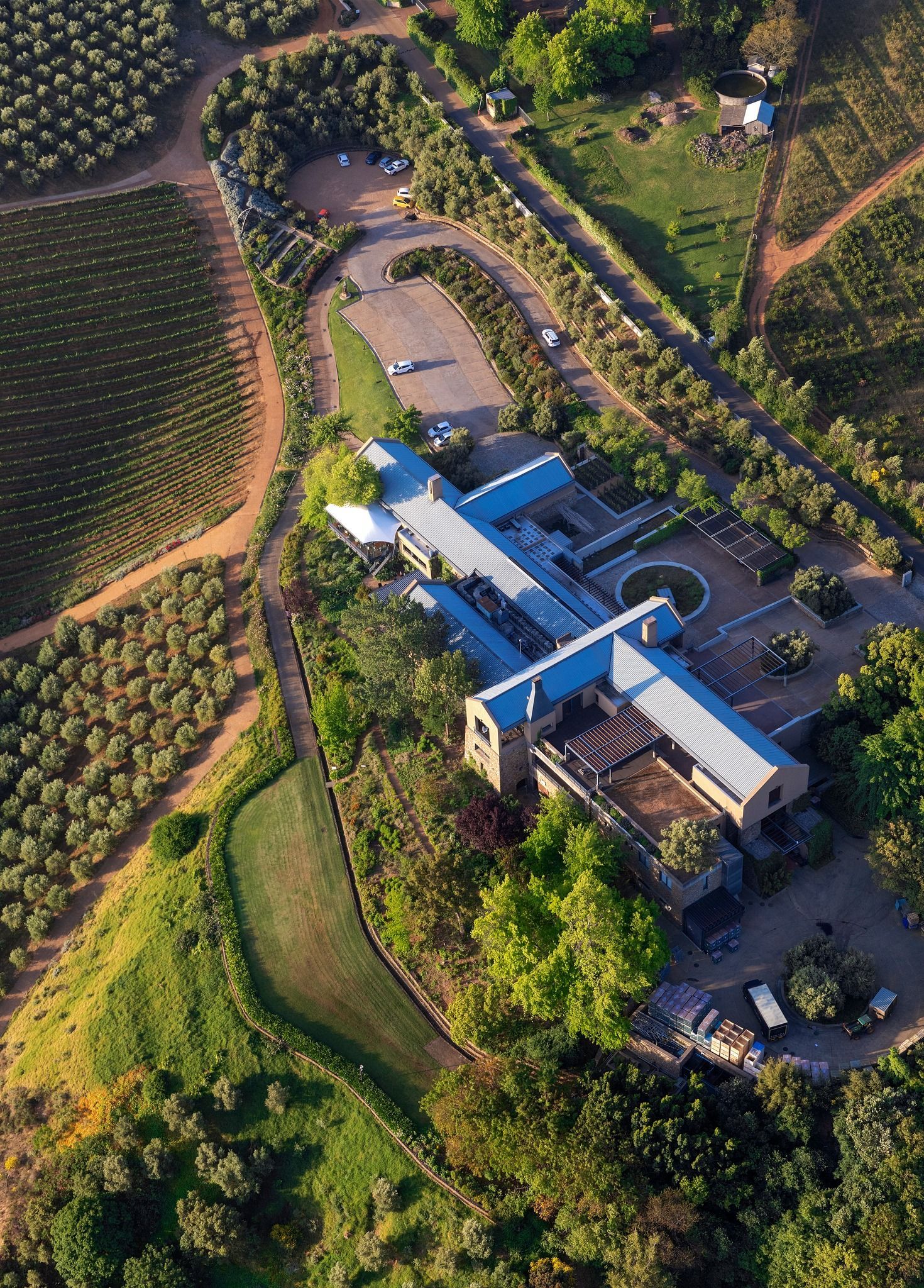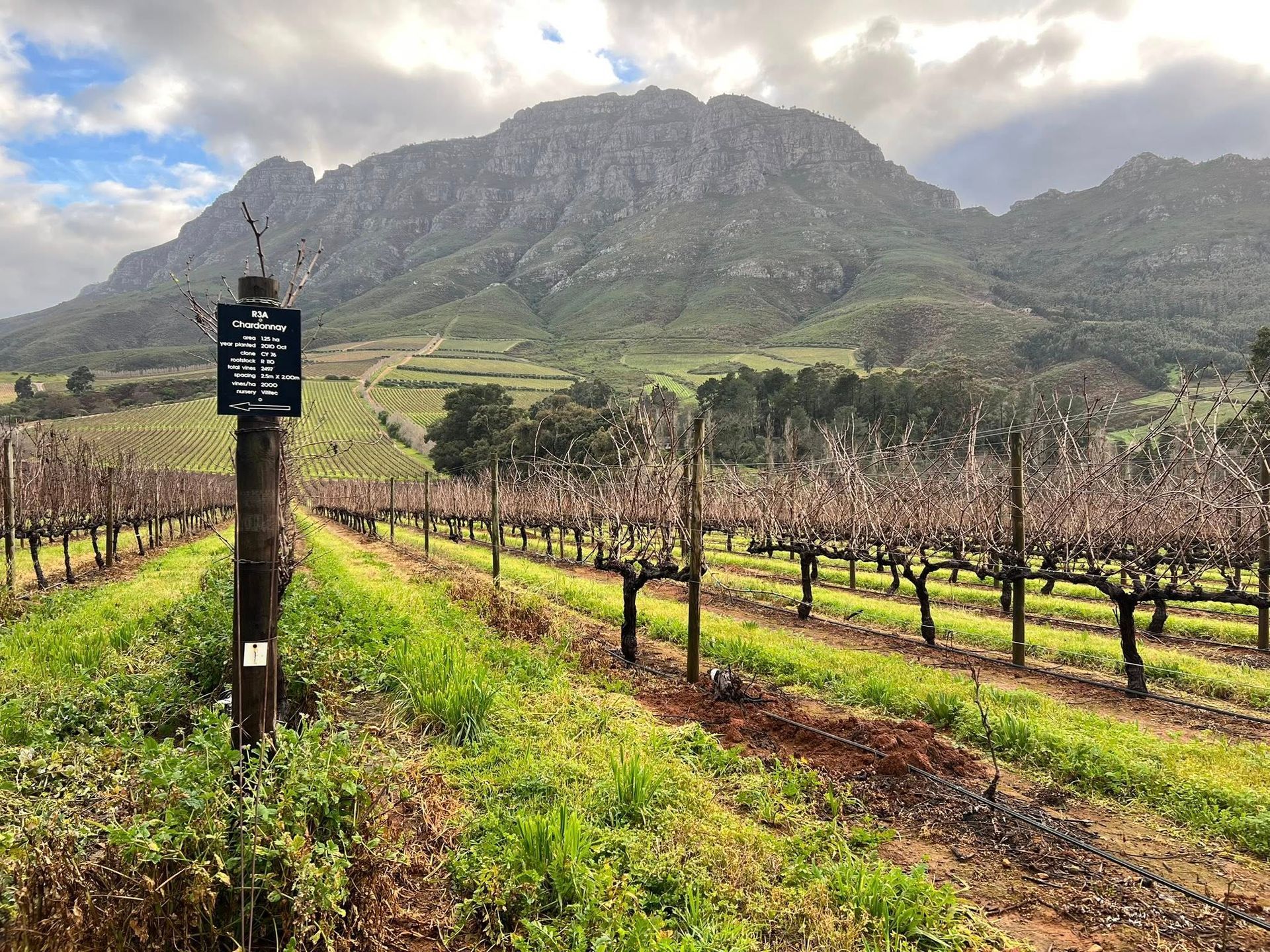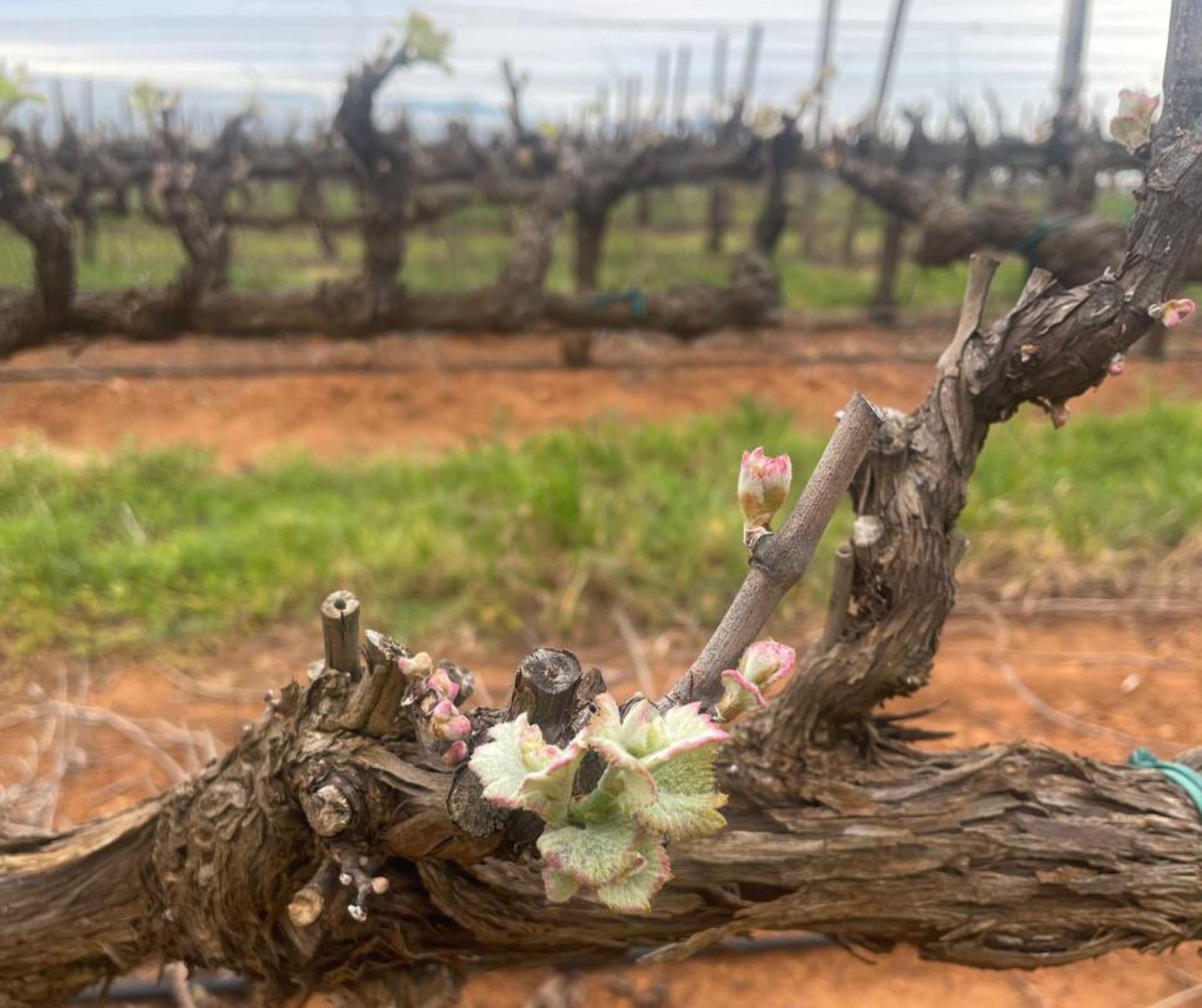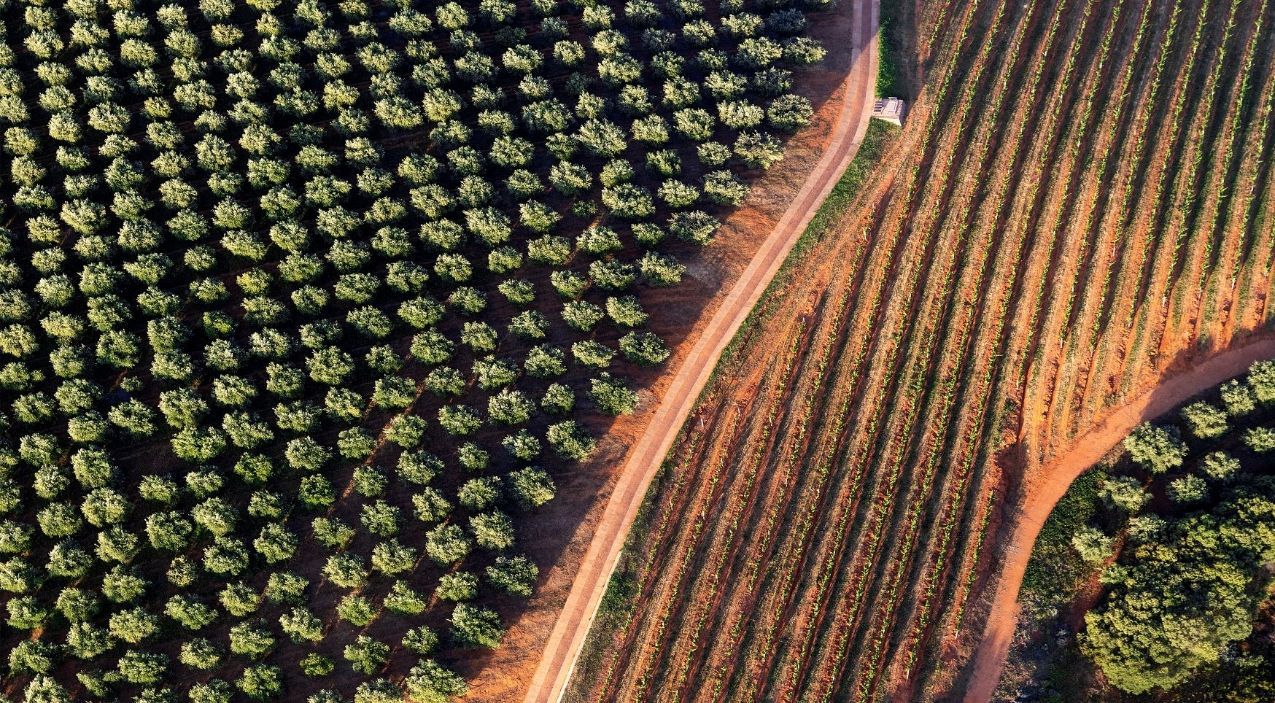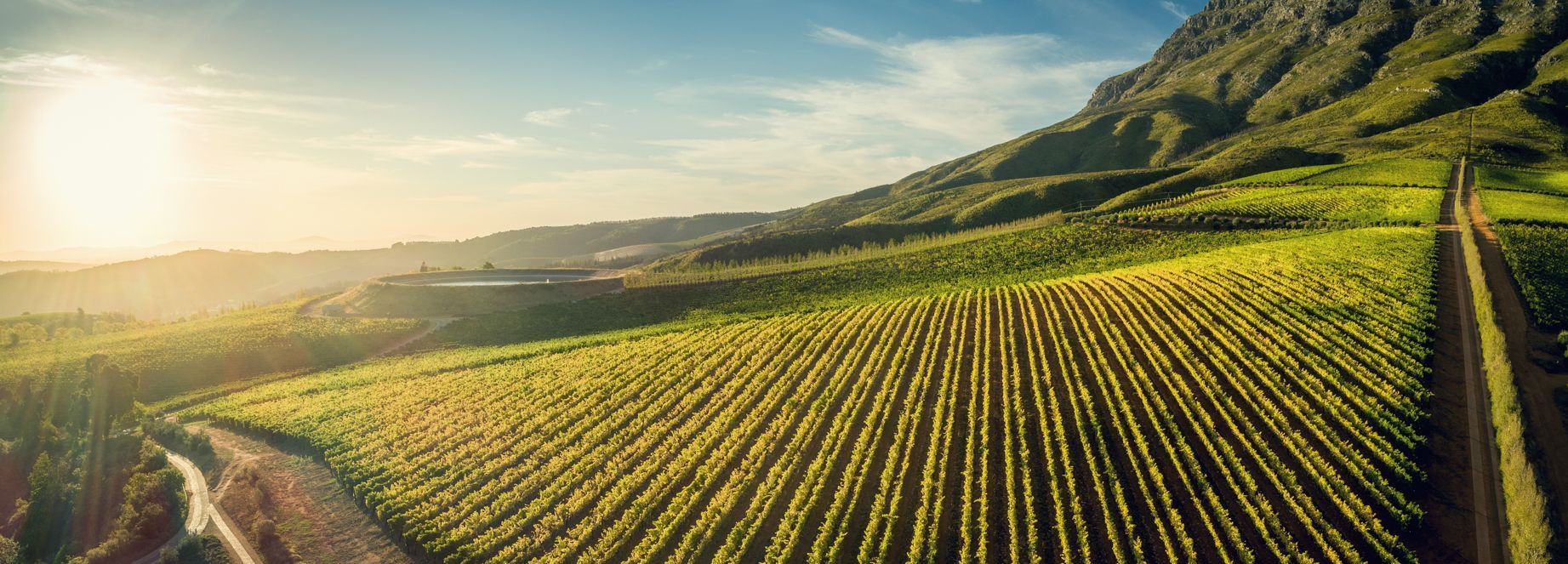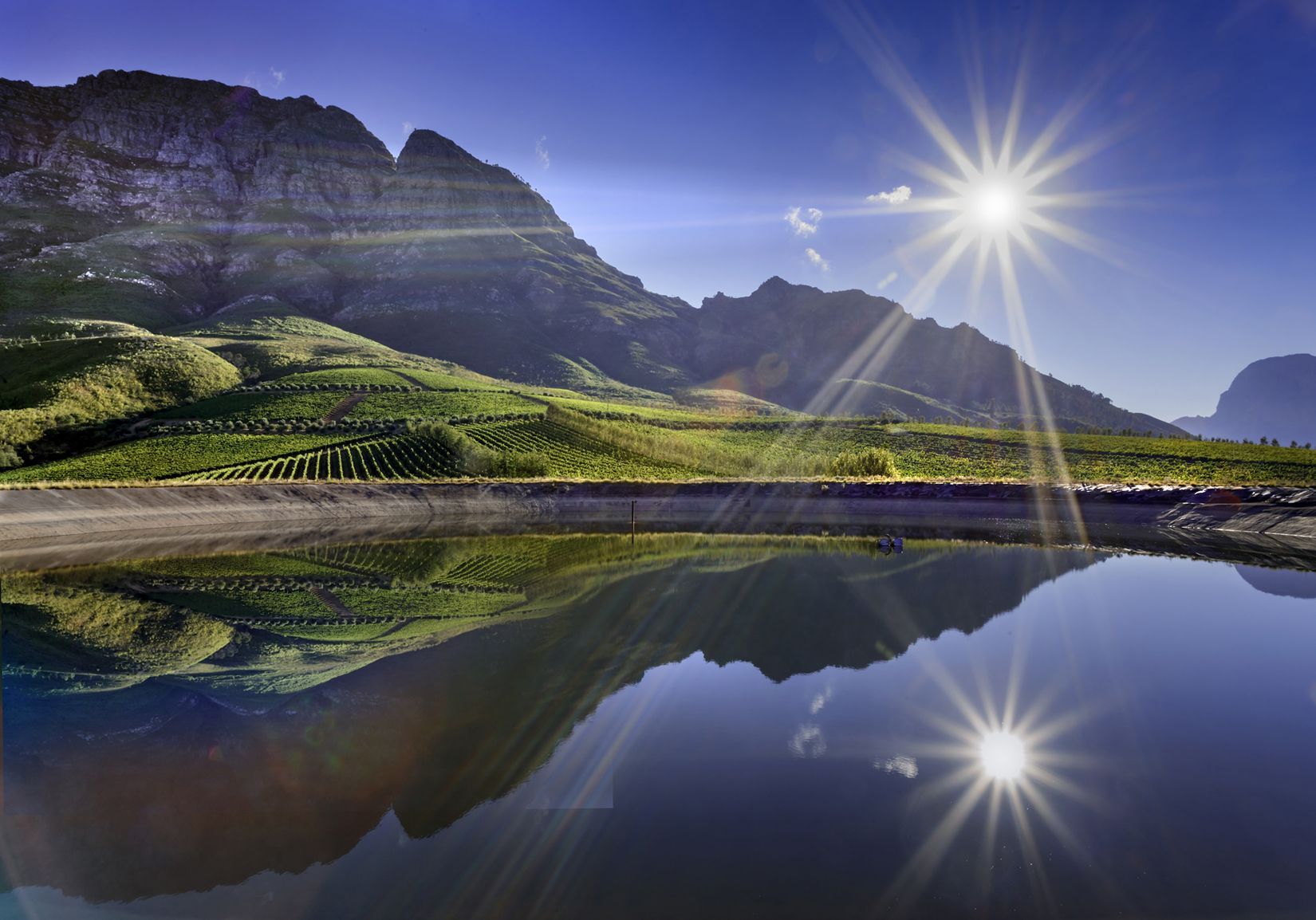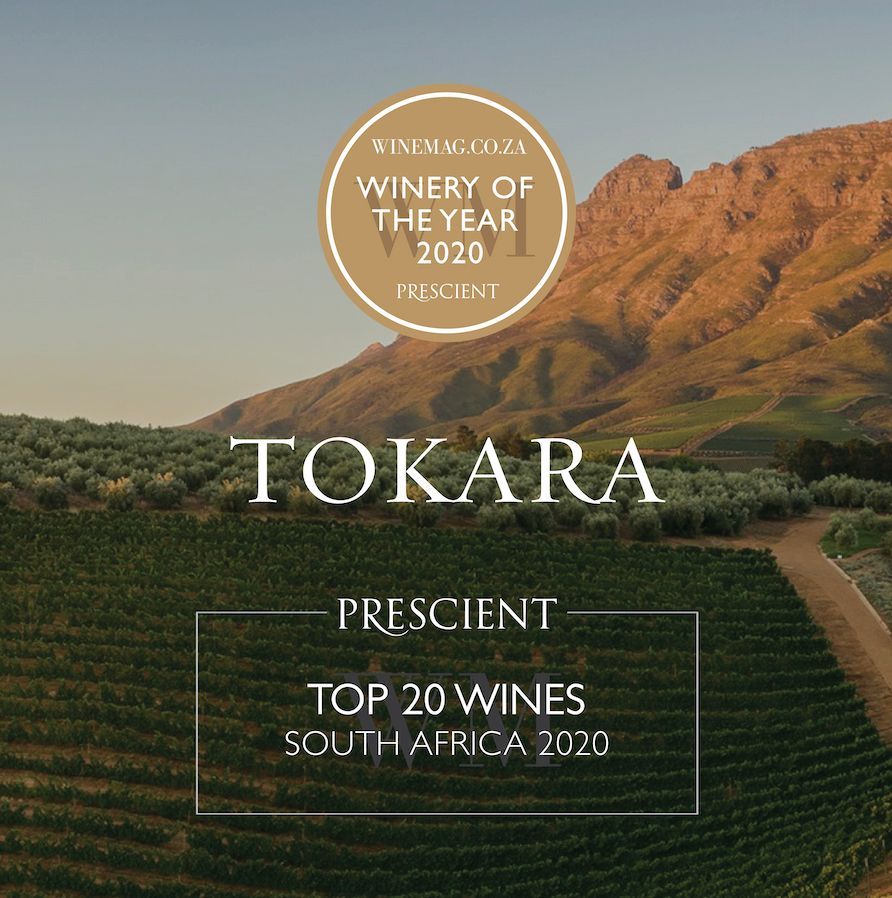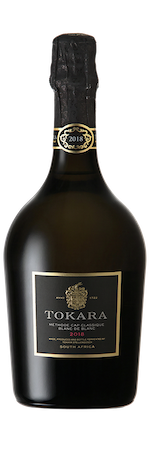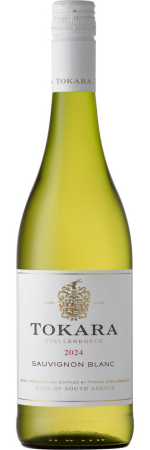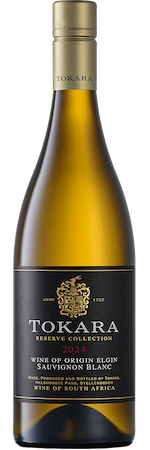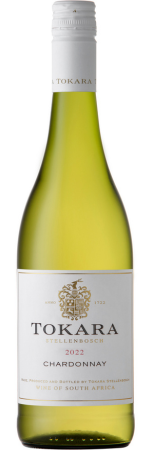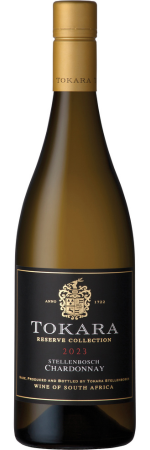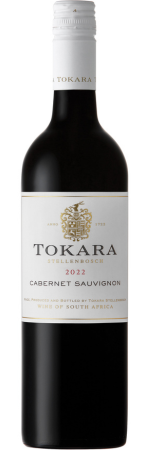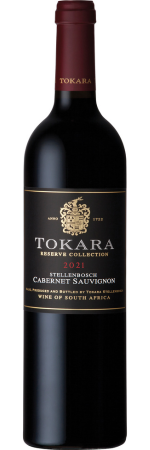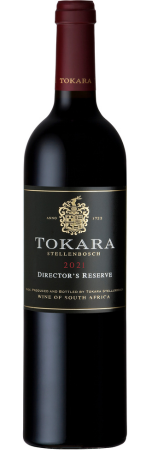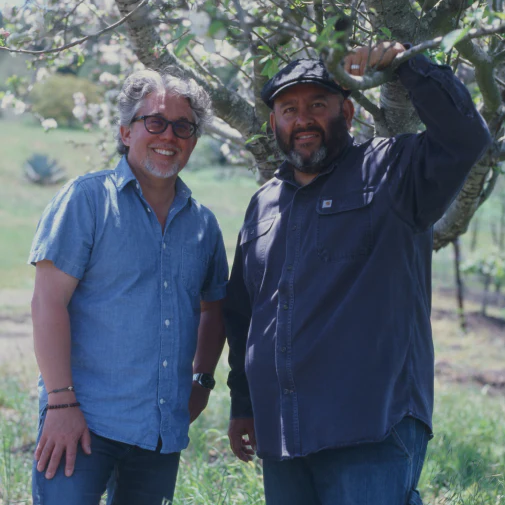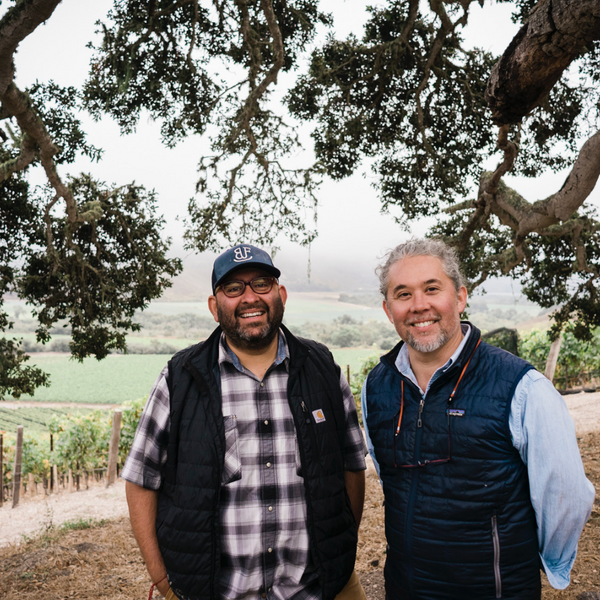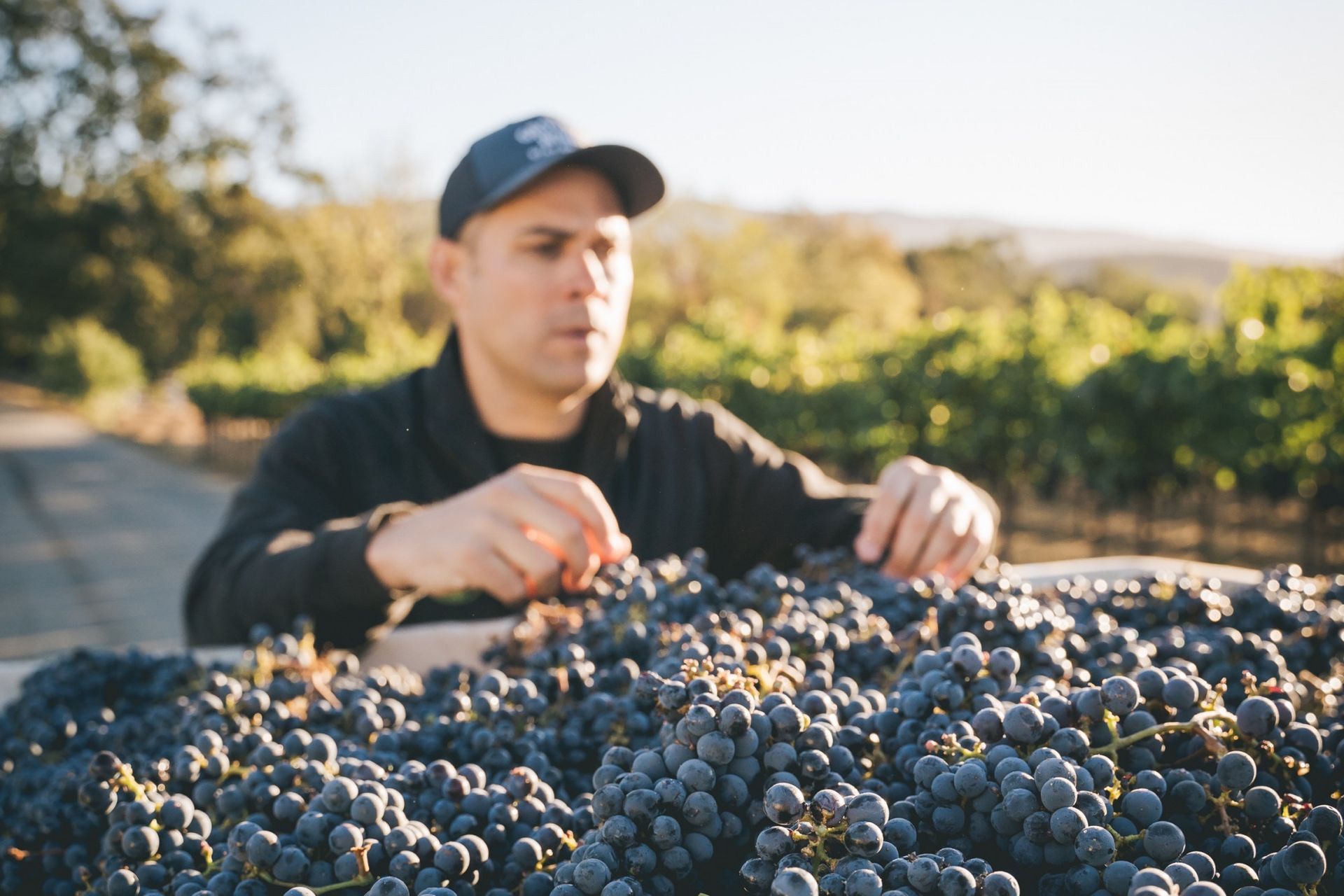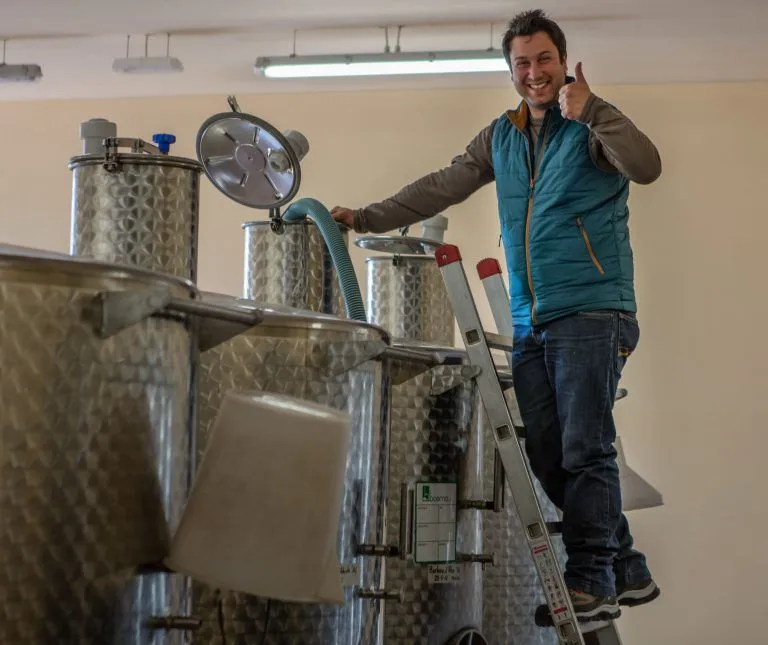Stellenbosch, Western Cape, South Africa
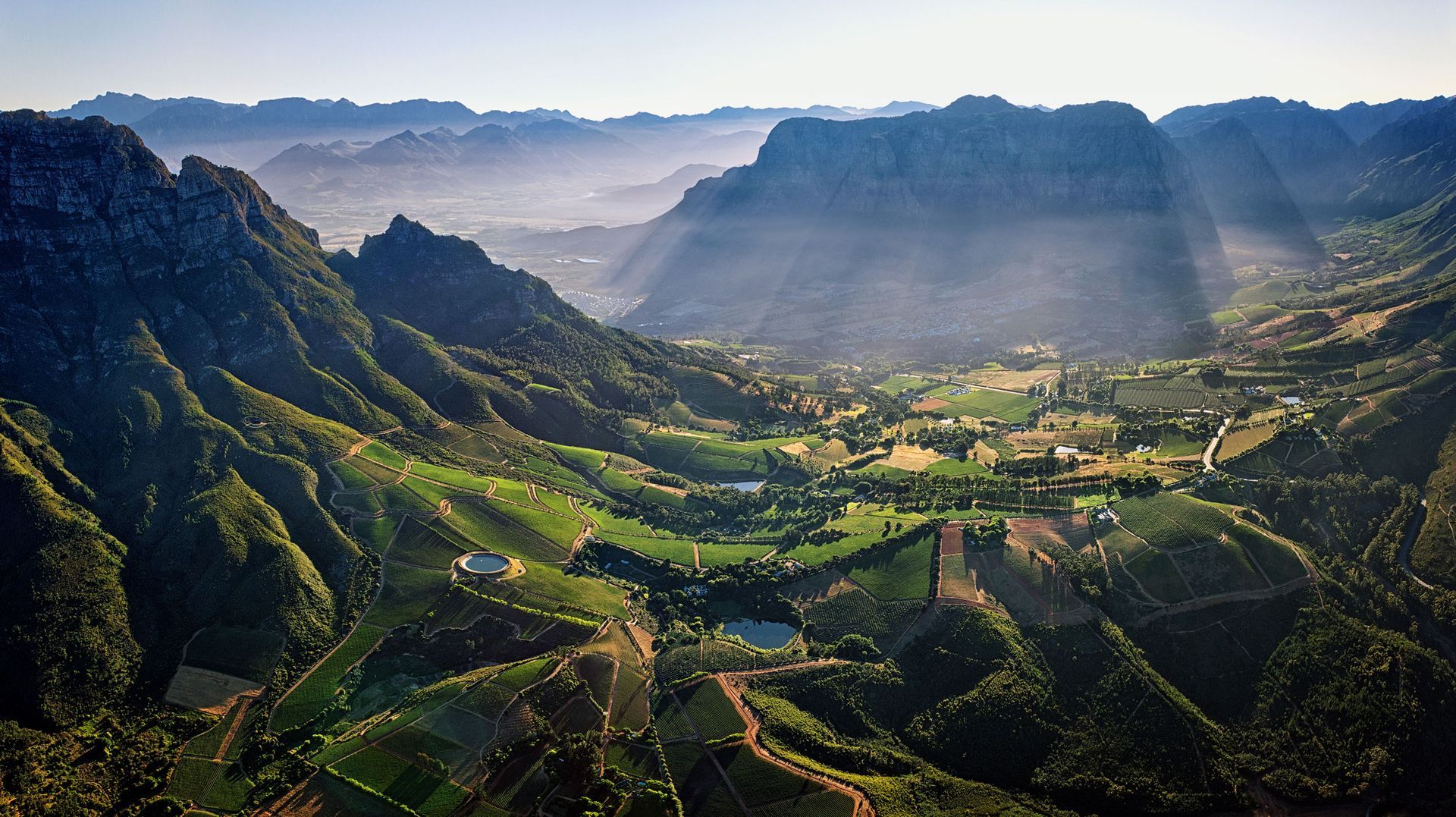
Tokara is, in every sense of the word, a discovery.
Let’s begin not with the wine but with the mother of the wine: the Mountain.
The Simonsberg mountain crests sharply from the Earth like a reptilian spine of some Leviathan, trapped mid-dive in ancient granite. South Africa is the land of primordial rocks, home to the oldest paleosols in the Southern Hemisphere (second only to Greenland). This 600 million year old monolith stands over the bucolic paradise of the cape at 1,500 meters above sea level, a vantage point at the end of the continent, at what feels like the very end of the Earth.
With its scorched back to the gnarly Northern sun, the Simonsberg mountain gifts the famed vineyards below a tranquil shade in key hours of the day, a daily clemency from the heat. Moreover, this granite tooth in the plain gathers clouds about it, cradling the vines, and catches hold of the prized rains that visit every winter, replenishing the clay subsoils that sit meters below their high-prized high-draining gravels, built up over millennia of colluvial decomposition from the barren peaks above. These Simonsberg soils are the primeval firm that midwifes South Africa’s most illustrious and highly-valued reds.*
This all comes together into an exercise in chiaroscuro, in contrast & concealment. In blind tasting after blind tasting, the Cabernet Sauvignon’s of Simonsberg-Stellenbosch go shot for shot with the Napa Valley and Margaret River for the most highly awarded and regarded Cabs in the new world, and yet they continue to offer extreme value by comparison. It’s in this ideal stretch of Earth that Tokara was so recently born, arguably the most important producer to emerge in South Africa since the turn of the millenium.
This extreme fortune for Cabernet was proved yet again recently by this present 2021 vintage of Tokara’s Reserve Collection Cabernet Sauvignon, the very wine we are debuting in Alberta this moment, which was the top winner in the annual Decanter World Wine Awards, tasted blind against thousands of competitors and winning the coveted Best in Show.
Tokara owes its existence and quality to the well-heeled and impassioned devotion of GT & Anne-Marie Ferreira, who bought this property in the 90’s and spared no expense in elaborating the best expressions of Simonsberg possible. To that end, Tokara was modeled after the great estates of Bordeaux, building a state-of-the-art gravity-fed cellar, hiring the best minds in South African viticulture and winemaking, gleaning the learned lessons of their generous neighboring vineyards, and implementing the most advanced methods and technologies for vineyard stewardship. In thanks to their neighbors who had gone before them and so happily shared with them the best orientations and clones and densities and varieties they had discovered through decades of experimentation, Tokara in turn shared the use of their technologies, like NDVI** and consulting with the foremost professors and agronomists to eradicate leaf roll virus. Zero corners cut. The result are award winning wines that have raised the profile and quality of wine growing in the entire sub-zone.
Descending into the Tokara cellar, a place of deliberate silence and suspended light, the grapes here arrive not in a clamour but in a quiet procession — sorted by hand, sorted again, then surrendered to the steady pull of gravity. No pumps, no wanton agitation. It is a descent from the pressing level to the fermenting level to the ageing level to the bottling level.
It is here that Tokara’s award-winning winemaker Stuart Botha marries the best of Old World minimalism with New World precision. With such hedonistic results, it’s easy to forget the immense discipline and exactitude that go into these wines, but great winemakers often disappear behind the bottle the way great chefs can disappear behind their food. Botha joined Tokara in 2017 after a decade at the historic Eagle’s Nest estate in Groot Constantia, where he won awards for his outstanding work with Syrah. Through his schooling followed by years of experimentation with temperatures, timings, presses, cap management, and with all manner of vessels from amphorae to the best French cooperages in the world, Botha has developed a terroir-driven style that interprets the best of the vineyards with terrific poise. He sticks with 100% indigenous yeasts for his reds and employs some carefully selected yeasts to bring out the best in his whites. The proof is in the pouring:
Botha’s whites are defined by their texture and aromatic precision. Each vintage is treated to a uniquely dialled approach to the size, renewal, and duration of time in top-tier French oak, the amount of MLF to allow, how extensively they stir the lees, all geared toward elaborating the best the fruit can offer, the finest balance, the greatest expression the site can muster. (Mind you the entry level Sauv Blanc is always in stainless to preserve that fresh, aromatic, seaside expression of Elgin’s terroir). The reds are of course no less meticulous. Not unlike the most prized left bank examples, the Director’s Reserve Red Bordeaux blend often spends about two years in excellent barriques with with the intent to bottle a wine with at least two decades of potential improvement. This wine, along with the Reserve Collection Cabernet Sauvignon, consistently receives top accolades from international critics and competitions. Tokara’s Cab’s just sing so good, those uniquely iron-oxide rich soils and terrific gravel drainage giving this graphite intensity, cassis purity, and excellent structure that we love.
Sustainability is embedded in the estate’s ethos, though not as a marketing veneer. Irrigation is minimized thanks to winter rainfall and deep-rooting rootstocks. Native cover crops are cultivated between rows to enhance biodiversity and soil health, while chemical interventions are kept to an absolute minimum. Tokara also shares its technological insights with neighbouring producers, reinforcing a culture of community upliftment that has become a hallmark of the post-apartheid Cape winelands.
To begin, we've selected six flagship wines from the estate to debut in Alberta:
- 2024 Tokara Premium Sauvignon Blanc: This cuvée is a juggernaut in ZA and abroad, this being Tokara’s stainless steel Sauv Blanc that is sourced chiefly from their cool coastal Elgin vineyard. It’s aromatic yet flinty, stitched with a whisper of a spritz in there like some vogue Austrian wine, giving layers of green citrus and honeysuckle and something fun and off-beat and exciting going on. Like Sancerre with a sun tan.
- 2023 Tokara Premium Chardonnay: A mercifully priced high quality Chardonnay with terrific precision and generous fruit—white peach, lime zest, and salted lemon—aged entirely in Burgundian French oak 228L casks (only 3% new) for eight months with ~80% MLF and regular lees stirring.
- 2022 Tokara Premium Cabernet Sauvignon: This is a pleasure bomb of juicy red fruit, beautifully integrated oak, and great balance. It’s an authentically textbook Cabernet at a fair price! This is the kind of wine that catches you off guard. It is easy to forget how beautiful Cab Sauv can be in this style as it is a style so rarely executed well at this price (at least in my experience). I’m talking about the full bodied, early drinking, new world Cab Sauv. But here you have it, with none of the staves or gimmicks or additives. Cold soaked pre-fermentation, racked to open top oak foudres to fermet with indigenous yeast, then racked to 100% 225L French oak Barriques (20% new) to age for a total of nineteen months. On paper, you’d think this wine is twice the price. And it tastes like it.
- 2023 Tokara Reserve Collection Chardonnay: On the nose, grilled lemons and (dare I say) Mountain Dew generousity checked by orange blossom and toasted almond delicacy. The palate is refined, you find ripe citrus and a hint of Werthers but the freshness and salinity keep the wine from losing itself in decadence. The finish gives citrus oil, ginger, struck flint; an excellent Chardonnay. Only the best free run juice from the best parcels, showing off Simonsberg terroir beautifully, a full bodied (14%) barrel fermentation—28% new oak this vintage, the rest second and third fill, with about 80% of the barrels allowed to go through MLF—marrying power and elegance. Many years of cellaring potential herein, friends.
- 2021 Tokara Reserve Collection Cabernet Sauvignon: Simonsberg’s favourite son. The Reserve Collection Cab Sauv is an instant yes, it hits with that feeling you get from the Rolling Stone’s, just an instant classic the moment it hits your palate. It is the most blindable Cab Sauv conveivable: cassis, tobacco leaf, sage, graphite, and crushed stone. This is a winning Cabernet with a firm handshake and broad smile. From Tokara’s highest blocks. The details of the wine are rather complicated so I’ll link to the tech sheet and leave it at this: indigenous ferment with elaborate cap management and varying fermenting vessels, racked to French oak barriques (59% new) to age for 22 months. Winner of the Best in Show at the 2024 Decanter World Wine Awards.
- 2021 Tokara Director’s Reserve Red: This is Tokara’s highly awarded flagship cuvée (there is a highly collectible tête de cuvée called TELOS made in minute quantities), a red Bordeaux blend with Simonsberg’s champion variety Cabernet Sauvignon leading the pack at 70%, darkly spiced and scaffolded by 14% Petit Verdot, then velvet-upholstered with 10% of that smiling Bhuda we call Merlot. Let’s call the 4% Cabernet Franc and 2% Malbec the book of poetry and shot of espresso needed to round out the wine’s personality. Structured yet refined, this wine is a benchmark for Stellenbosch WO and testament to the magical powers of the Simonberg Mountain. To put a pin in an old-world analogue, lovers of Saint-Julien without deep wallet and a patient cellar should find great solace here. From the best sections of their best blocks in their best oak for two years, indigenous fermented, unfined and unfiltered. Complex, tensile, and structured with fine dense tannins. My tasting notes include the obvious prevalence of gorgeous blackberry and cocoa but somehow also, “cold cold snow, spring thaw, and the truly perfectly ripe plum pulled right from the tree, impossible to grow where I come from.”
Each wine in the portfolio reflects a unique intersection of site, intention, and technique. They are wines that speak to the sommelier as much as to the soil scientist, and their arrival in Alberta signals another frontier in the appreciation for South African wine so well underway thanks to so many other incredible importers I count as my friends and co-labourers.
And let us not neglect discussing Ageing Potential: What excites me most about Tokara is how well their wines weild the double edged sword of immediate enjoyability and long-term potential. The wealth of generous scores prove the former, but what of the latter? For an estate only 25 years old… how are we to know how well the wines taste? Well friends, I’m excited to report that Tokara’s track record for ageing has been firmly established in competitive blind tastings!: Each year South Africa’s premier wine media outlet, WineMag.co.za, hosts a 10-Year-Old Wine competition in which they blind taste benchmark ZA wines from the vintage 10 years hence to determine, almost academically, which wines are ageing best. Tokara has taken or tied for the top spot for either red or white (or both!) every single year since it began anew in 2017.*** So not only will the wines work beautifully for restaurants and near-term drinkers, they are perfect for collectors as well.
At just over two decades old, Tokara is a young estate by global standards. Yet it possesses a philosophical and technical maturity that belies its age. It is both a culmination of South Africa’s viticultural rebirth and a projection of its future. For Alberta’s elite buyers, sommeliers, and wine educators, Tokara offers more than just an exceptional bottle. It offers a lens through which to understand the new South Africa: ambitious, rooted, collaborative, and uncompromisingly excellent. In a world increasingly awash in wine, Tokara stands as a producer worth knowing, worth studying, and emphatically worth pouring.
*The list of benchmark South African wines from the Simonberg slope is very long but it is Tokara’s own tête de cuvée, the TELOS, that is in fact South Africa’s most-expensive wine according to wine-searcher.com, a fact I just discovered as I wrote this!
** Tokara employs NDVI (Normalized Difference Vegetation Index) imaging to assess canopy vigor across every vineyard block. By overlaying satellite and drone imagery with ground-truth data, viticulturist Saul du Plessis and his team can identify and harvest discrete ripeness zones with surgical precision. This approach ensures optimal phenolic maturity in each ferment, enabling a stylistic clarity that transcends vintage variability.
*** If you’re curious, here are links to the results for 2025, 2024, 2023, 2022, 2021, 2020, 2019, 2018, and 2017.
Accolades:
- The World’s 50 Best Vineyards, 2022
- WineMag.co.za’s Winery of the Year, 2020 • "TOKARA, the prestigious family owned Stellenbosch wine estate, has been crowned Winery of the Year securing Best Red Wine overall, three category winners and five Top 10 wines in the Prescient Top 20 Wines of South Africa 2020."
- 2018 – Top 50 Most Admired Wine Brands in the World, Drinks International
- 2018 – Most Successful Producer – Wine Magazine 10-Year-Old Wine Awards
- 2020 – Most Successful Producer Prescient Wine Awards
- 2021 - Top 100 Wineries of the World
- 2022 – Top 50 Wineries of the World
- 2023 – Top 100 Wineries of the World
- 2023 – SA Top 100 Wine Producer (2013 – 2022)
Further Reading on Tokara’s Terroirs
The estate’s vineyards lie between 350 and 550 meters above sea level with extraordinary geophysical complexity. Here, decomposed granite, clay-rich soils, and pockets of weathered sandstone coalesce atop ancient geological formations dating back over 600 million years. These soils, originally part of a seabed uplifted through volcanic and tectonic activity, provide both excellent drainage and mineral tension to the resulting wines. The diversity of soil profiles across Tokara’s holdings allows for a mosaic approach to viticulture. Mid-slope blocks with iron-rich red soils and decomposed granite are particularly prized for Cabernet Sauvignon and Syrah, while sandstone-dominated parcels at higher elevation are ideally suited to Chardonnay. Each block sings in a different key: some sharp with citrus, others round with cassis and tobacco.
We must also take note of Tokara’s home away from home, their Highlands vineyard in Elgin—South Africa’s premier cool-climate zone—a short distance from the raw Arctic ocean, perched on pure sandstones at 500m on Table Mountain. This markedly different terroir has earned the estate dozens of awards and accolades for Sauvignon Blanc’s of striking aromatic purity and linearity.
These distinct sites are unified not merely by the vision of the estate, but by a viticultural strategy rooted in scientific rigor. All vineyard and cellar operations are digitally mapped and logged, allowing real-time tracking of vine health, fermentation kinetics, and barrel development.
Further Reading on Tokara’s Work in the Cellar
The estate’s cooperage program includes 225L, 228L, and 400L French oak barrels from top-shelf tonnelleries Sylvain, Saury, and Darnajou, with new oak percentages tailored to the needs of each cuvée. And after these carefully timed ageing regimens come to a close, it’s important to note the boring and oft-overlooked realities of bottling, the moment at which a great wine can be kicked in the gut without the means or machines to do it right. Tokara boasts a top-of-the-line Bertolaso bottling line that guarantees microbiological stability and bottle consistency.
